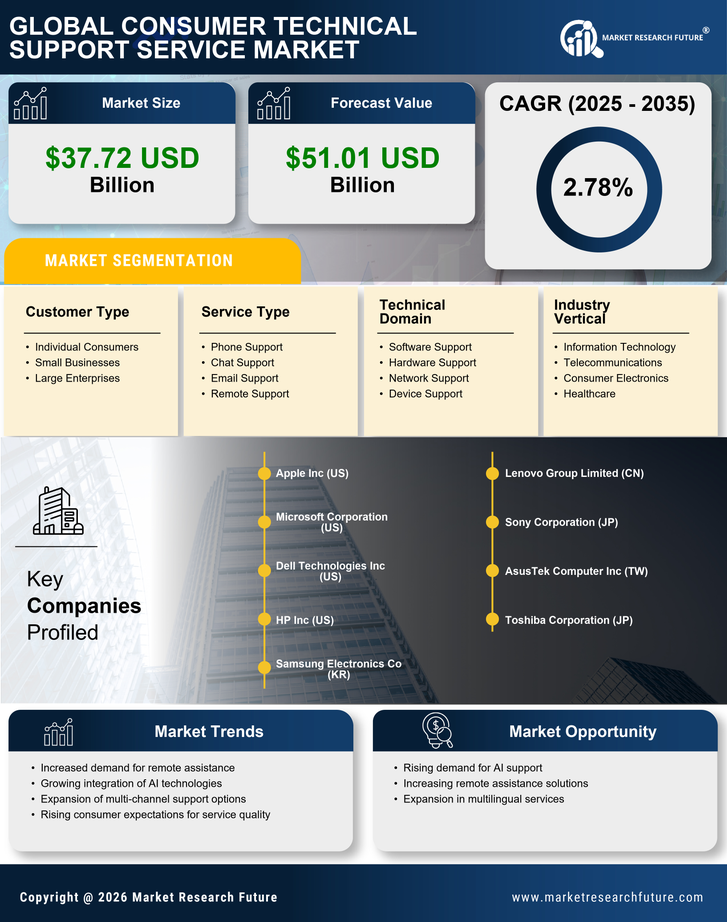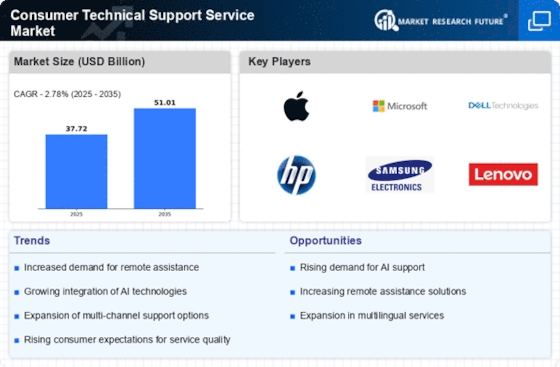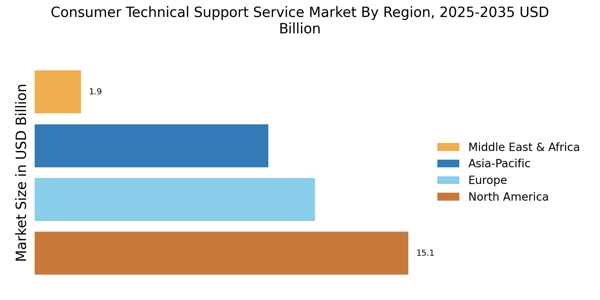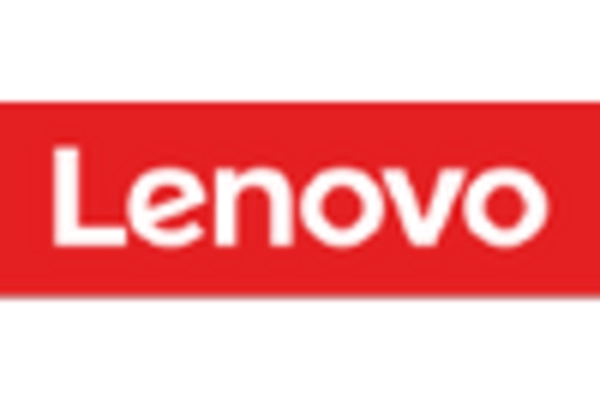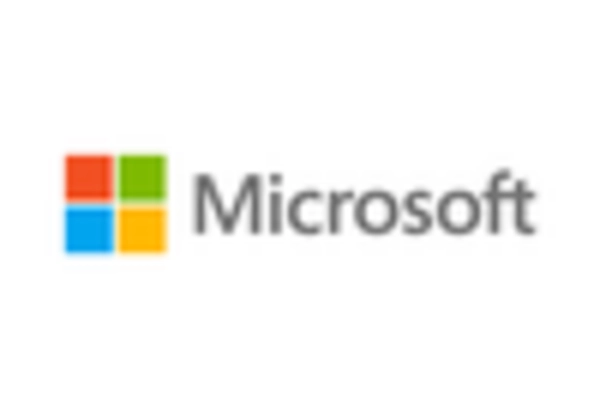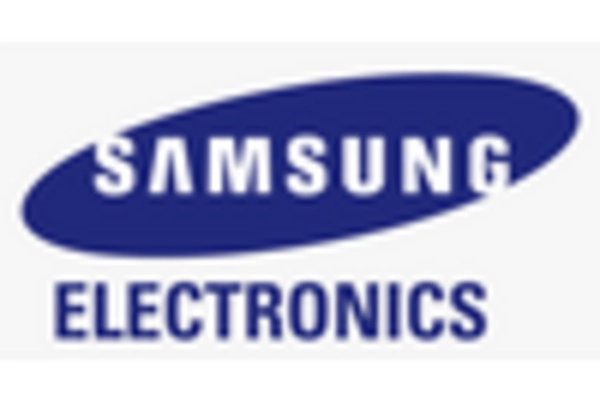Growing Importance of Customer Experience
In the Consumer Technical Support Service Market, the emphasis on customer experience has become increasingly pronounced. Companies are recognizing that providing exceptional support can differentiate them from competitors. In 2025, it is anticipated that organizations will allocate more resources to enhance their customer service strategies, focusing on training support staff and implementing feedback mechanisms. This shift is likely to result in improved customer loyalty and retention rates, as consumers are more inclined to remain with brands that prioritize their needs. Furthermore, businesses that excel in customer experience are expected to see a positive impact on their bottom line, as satisfied customers often lead to repeat business and referrals. Thus, the focus on customer experience is a critical driver shaping the future of the technical support service market.
Technological Advancements in Support Tools
The Consumer Technical Support Service Market is being significantly influenced by technological advancements in support tools. Innovations such as artificial intelligence, machine learning, and chatbots are revolutionizing how support services are delivered. These technologies enable companies to provide faster and more accurate responses to consumer inquiries. In 2025, it is projected that AI-driven support tools will handle up to 30% of all customer interactions, streamlining processes and reducing wait times. This trend indicates that businesses must embrace these technologies to remain competitive and meet the expectations of tech-savvy consumers. As the industry evolves, the integration of advanced support tools will likely become a standard practice, enhancing the overall efficiency of technical support services.
Rising Demand for Technical Support Services
The increasing complexity of consumer electronics and software applications has led to a rising demand for technical support services. As consumers encounter more sophisticated devices, the need for assistance becomes paramount. In 2025, the Consumer Technical Support Service Market is projected to grow at a compound annual growth rate of approximately 8%. This growth is driven by the proliferation of smart devices and the internet of things, which require ongoing support and troubleshooting. Consumers are increasingly reliant on technical support to resolve issues quickly, thereby enhancing their overall experience with technology. This trend indicates that companies providing technical support services must adapt to meet the evolving needs of consumers, ensuring they remain competitive in the market.
Expansion of Subscription-Based Support Models
The rise of subscription-based support models is reshaping the Consumer Technical Support Service Market. Consumers are increasingly favoring predictable pricing structures that offer ongoing support for a fixed fee. This model not only provides consumers with peace of mind but also ensures that companies have a steady revenue stream. In 2025, it is estimated that subscription services will account for a significant portion of the market, as more businesses adopt this approach to enhance customer loyalty. This shift suggests that companies must develop comprehensive support packages that cater to diverse consumer needs, ensuring they remain relevant in a competitive landscape. The expansion of subscription-based models may also lead to innovations in service delivery, as businesses seek to provide added value to their subscribers.
Increased Adoption of Remote Support Solutions
The shift towards remote support solutions has transformed the Consumer Technical Support Service Market. With advancements in technology, companies are now able to offer remote assistance, allowing technicians to diagnose and resolve issues without being physically present. This approach not only reduces operational costs but also enhances customer satisfaction by providing quicker resolutions. In 2025, it is estimated that remote support will account for over 60% of all technical support interactions. This trend suggests that businesses must invest in robust remote support technologies to cater to the growing preference for convenience among consumers. As remote support becomes more prevalent, the industry is likely to see a shift in service delivery models, emphasizing efficiency and accessibility.
